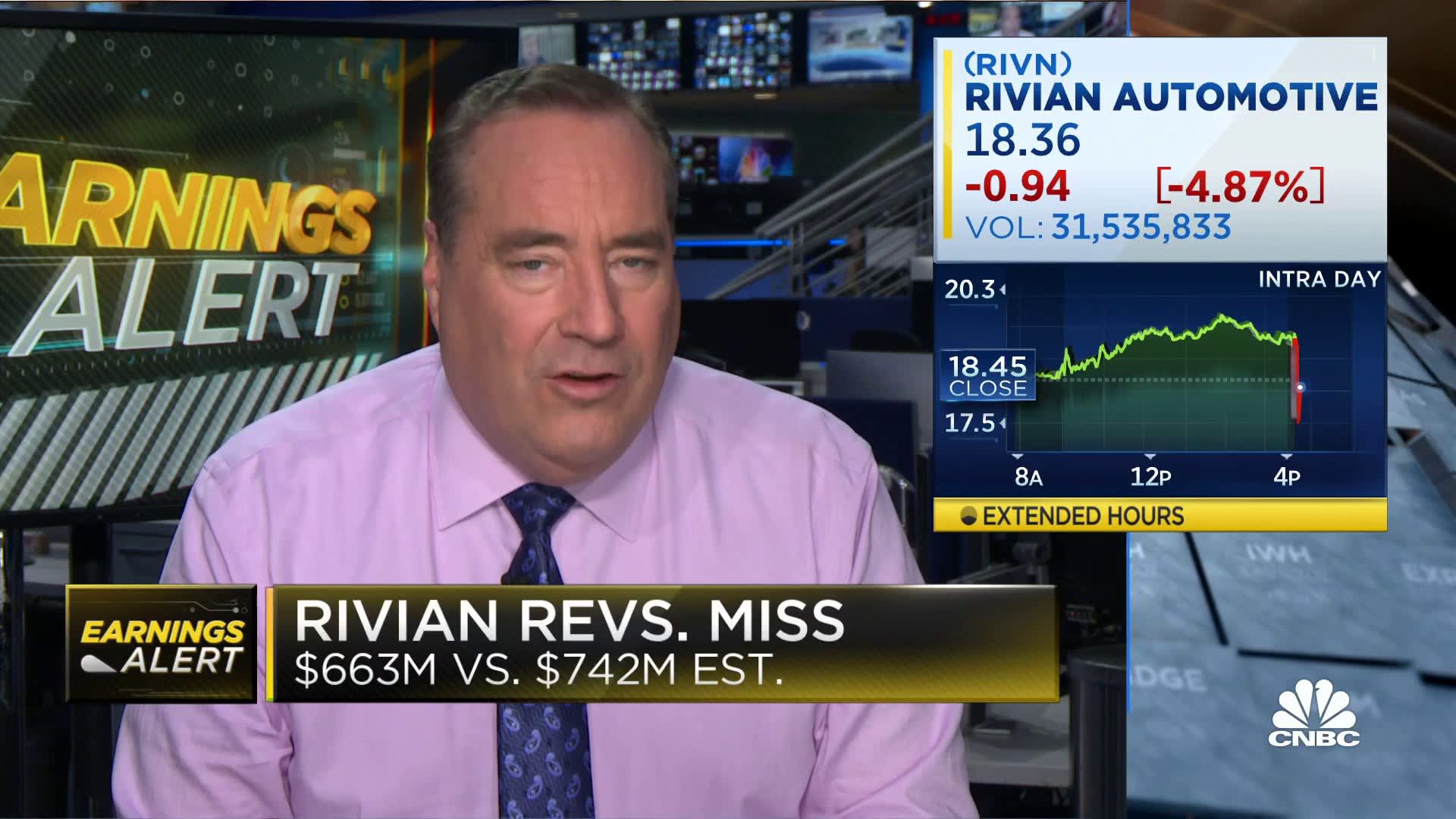Rivian electric pickup trucks sit in a parking lot at a Rivian service center on May 09, 2022 in South San Francisco, California.
Justin Sullivan | Getty Images
Electric vehicle startup Rivian Automotive reported mixed fourth-quarter earnings and a lackluster production outlook after the bell Tuesday.
Shares of Rivian were down by roughly 8% during extended trading. The stock closed Tuesday at $19.30 a share, up 4.6% for the session.
Here’s how Rivian performed in the period, compared with analysts’ estimates as compiled by Refinitiv:
- Adjusted loss per share: $1.73 vs. $1.94 estimated
- Revenue: $663 million vs. $742.4 million estimated
The company reported an adjusted loss before interest, taxes, depreciation and amortization of nearly $5.2 billion in 2022, narrower than guidance of a $5.4 billion loss in November.
For 2023, Rivian forecast vehicle production of 50,000 vehicles. That would be roughly double last year’s amount but below expectations of roughly 60,000, as estimated by several Wall Street analysts.
“Supply chain continues to be the main limiting factor of our production; during the quarter we encountered multiple days of lost production due to supplier shortages. We expect supply chain challenges to persist into 2023 but with better predictability relative to what was experienced in 2022,” the company said in its letter to shareholders.

Rivian said it expects to achieve a positive gross profit in 2024. Net loss for the fourth quarter was $1.7 billion — a narrower result than the $2.5 billion loss it reported a year earlier. Quarterly revenue of $663 million jumped from $54 million in the year-earlier period when the company had just started making its first products.
The results follow difficult times for the electric vehicle startup that have included slower-than-expected production, unexpected pricing pressure and plans to lay off 6% of its workforce in a bid to conserve cash.
Rivian is focusing on ramping up production of its R1 truck and SUV as well as an electric delivery van it builds for Amazon, its largest individual shareholder.
As of the end of last year, the company had about $12.1 billion in cash remaining, down from $13.8 billion at the end of the third quarter and $15.5 billion as of June 30. Capital expenditures for the fourth quarter were $294 million compared to $455 million during the year-earlier period.
Rivian said while inflation has been a factor in its supply chain, it will continue to take steps to ramp up production and reduce material costs by slimming down its engineering and vehicle design, along with commercial cost-down efforts.
The company’s forthcoming R2 model, for example, will use a simplified assembly and sourcing process to achieve “a meaningfully lower cost structure,” CEO RJ Scaringe said on an analyst call following the earnings report.
He added the automaker is “in a very different position with our supply chain today” relative to a year ago, which will help the company execute on more “aggressive cost and pricing” measures.
“It won’t necessarily be a linear path over the course of the next several quarters but we will start to see those impacts as early as Q1 as we start to reduce the material costs in our vehicles and the technology introductions,” said Chief Financial Officer Claire McDonough.
— CNBC’s Phil LeBeau contributed to this report.








